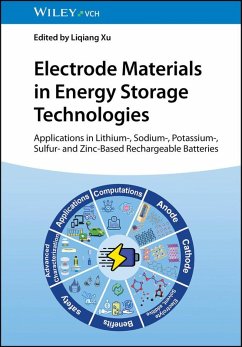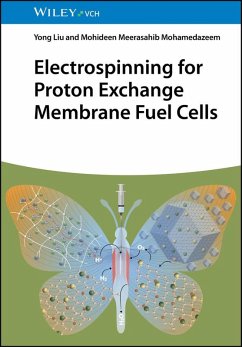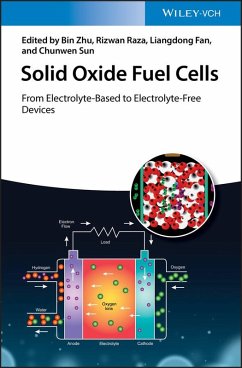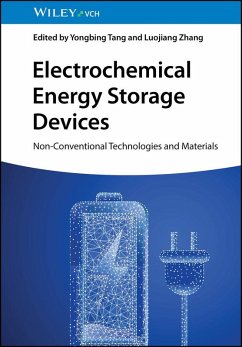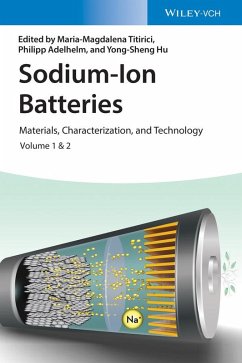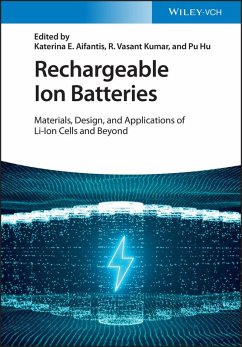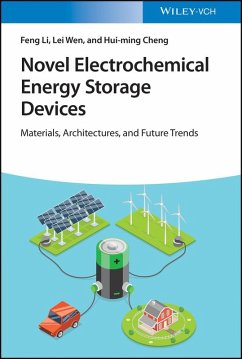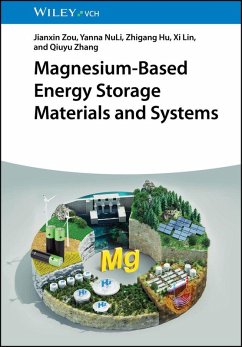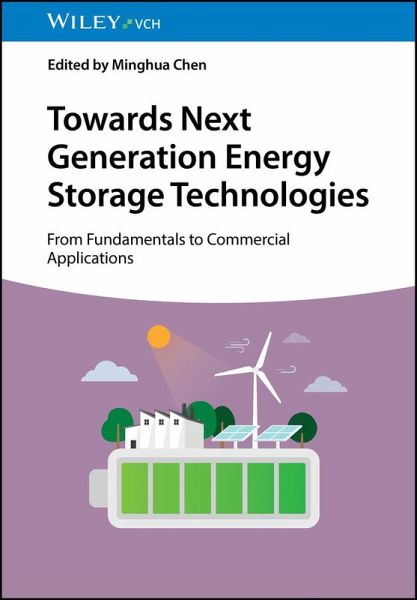
Towards Next Generation Energy Storage Technologies (eBook, PDF)
From Fundamentals to Commercial Applications
Redaktion: Chen, Minghua
Versandkostenfrei!
Sofort per Download lieferbar
142,99 €
inkl. MwSt.
Weitere Ausgaben:

PAYBACK Punkte
0 °P sammeln!
Develop the clean technologies of the future with these novel energy storage technologiesEnergy storage is a crucial component of the broader battle to develop clean energy sources and transform the power grid in light of advancing climate change. Numerous new energy storage technologies based on electrochemical redox reactions have recently been developed or proposed, promising to reduce costs and enable energy-dense devices and applications of many kinds. This urgent work demands to be incorporated into chemistry, materials science, and industry at every level.Towards Next Generation Energy ...
Develop the clean technologies of the future with these novel energy storage technologies
Energy storage is a crucial component of the broader battle to develop clean energy sources and transform the power grid in light of advancing climate change. Numerous new energy storage technologies based on electrochemical redox reactions have recently been developed or proposed, promising to reduce costs and enable energy-dense devices and applications of many kinds. This urgent work demands to be incorporated into chemistry, materials science, and industry at every level.
Towards Next Generation Energy Storage Technologies offers a comprehensive overview of these novel technologies and their applications. Beginning with an introduction to the fundamentals of electrochemistry and energy storage, it offers current and future research questions, design strategies, and much more. It is a must-own for scientists and engineers looking to develop the energy grid of the future.
Towards Next Generation Energy Storage Technologies readers will also find:
Towards Next Generation Energy Storage Technologies is ideal for materials scientists, inorganic chemists, electrochemists, electronics engineers, and anyone working on the clean energy grid or electrical devices.
Energy storage is a crucial component of the broader battle to develop clean energy sources and transform the power grid in light of advancing climate change. Numerous new energy storage technologies based on electrochemical redox reactions have recently been developed or proposed, promising to reduce costs and enable energy-dense devices and applications of many kinds. This urgent work demands to be incorporated into chemistry, materials science, and industry at every level.
Towards Next Generation Energy Storage Technologies offers a comprehensive overview of these novel technologies and their applications. Beginning with an introduction to the fundamentals of electrochemistry and energy storage, it offers current and future research questions, design strategies, and much more. It is a must-own for scientists and engineers looking to develop the energy grid of the future.
Towards Next Generation Energy Storage Technologies readers will also find:
- Summaries of state-of-the-art research and open challenges
- Detailed discussion of technologies including lithium-ion batteries, all-solid-state batteries, aqueous multi-valence energy storage systems, and more
- Discussion of applications including electric vehicles, aerospace devices, and many others
Towards Next Generation Energy Storage Technologies is ideal for materials scientists, inorganic chemists, electrochemists, electronics engineers, and anyone working on the clean energy grid or electrical devices.
Dieser Download kann aus rechtlichen Gründen nur mit Rechnungsadresse in D ausgeliefert werden.






